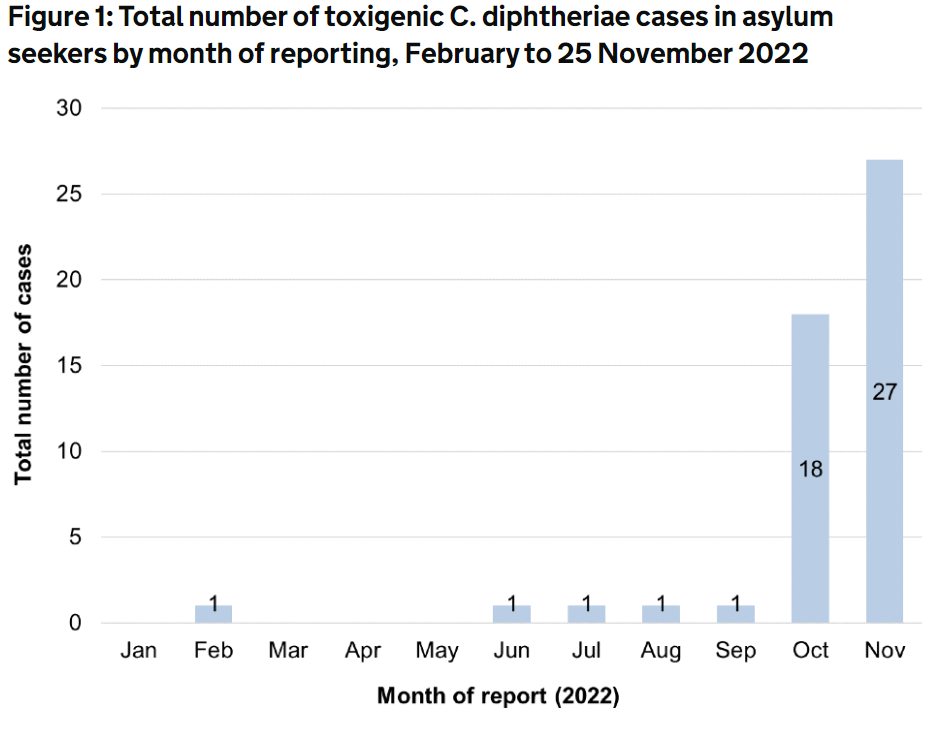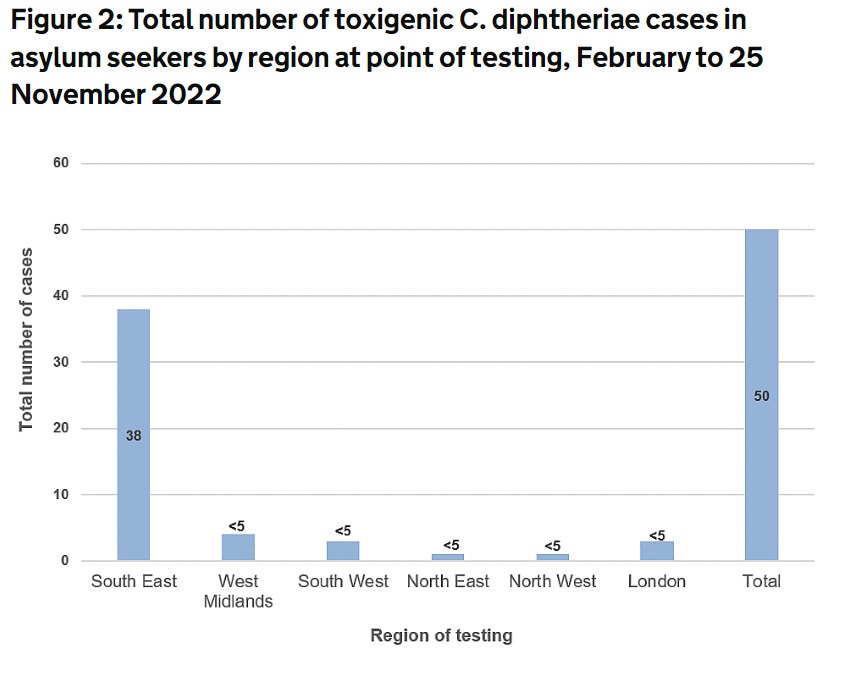Asylum seekers hospitalised with diphtheria as monthly infections rise by 50% after Manston centre death
50 diphtheria cases have been reported in asylum seekers so far in 2022 - a significant increase on 2021
Your support helps us to tell the story
From reproductive rights to climate change to Big Tech, The Independent is on the ground when the story is developing. Whether it's investigating the financials of Elon Musk's pro-Trump PAC or producing our latest documentary, 'The A Word', which shines a light on the American women fighting for reproductive rights, we know how important it is to parse out the facts from the messaging.
At such a critical moment in US history, we need reporters on the ground. Your donation allows us to keep sending journalists to speak to both sides of the story.
The Independent is trusted by Americans across the entire political spectrum. And unlike many other quality news outlets, we choose not to lock Americans out of our reporting and analysis with paywalls. We believe quality journalism should be available to everyone, paid for by those who can afford it.
Your support makes all the difference.Two asylum seekers have been hospitalised with diphtheria following a 50 per cent rise in cases of the infectious disease in the past month, new data has revealed.
It comes after the Home Office confirmed that a man who died after staying at the Manston processing centre did have diphtheria.
Diphtheria is a highly contagious infection that is very rare in the UK due to high levels of vaccination in the general population.
According to data published by the UK Health Security Agency on Monday, 50 asylum seekers who recently arrived in the UK tested positive for toxigenic C diphtheriae from 1 January to 25 November this year.
There have been two cases of severe respiratory diphtheria where asylum seekers were hospitalised.
Cases of toxigenic C. diphtheriae have spiked over the past month, with 27 cases recorded in November.
This was up from 18 cases in October. Only one case of diphtheria was reported in June, July, August and September respectively, the UKHSA revealed.

There have also been 25 cases of diphtheria found in ulcers, rashes or wounds.
The 50 total diphtheria cases so far in 2022 is a significant increase from 2021, when 10 cases of diphtheria were reported in the UK.
Health secretary Steve Barclay insisted on Monday that the risk of the public getting diphtheria was “very low” despite the rise in cases.
Mr Barclay said that hundreds of migrants were vaccinated against the disease before being moved out of the Manston processing centre in Kent to hotels around the country.
Mr Barclay, during a visit to the Royal Marsden Hospital in London, said: “We vaccinated a range of people at Manston before they were moved, so that was part of the targeted action that UKHSA put in place.

“Clearly within the population as a whole it’s very low risk, because there’s very high uptake of vaccinations within the local population, but we’re monitoring it closely and that’s why so many people were vaccinated – 500 were vaccinated before they left Manston.”
Asked about the risk to the general public, he added: “The risk is very low, partly because there is very high uptake of vaccination within the British public in the first place.
“But also we had a targeted action of vaccinations at Manston and so 500 people were vaccinated before they actually left Manston, and it’s something that UKHSA are monitoring extremely closely.”
Asylum seekers with suspected infections of highly contagious diseases will be told to isolate in their rooms, according to emergency public health guidance issued to hotels.
Hotels must provide meals to the person’s room, with individual crockery, linen and towels, the guidance states.



Join our commenting forum
Join thought-provoking conversations, follow other Independent readers and see their replies
Comments